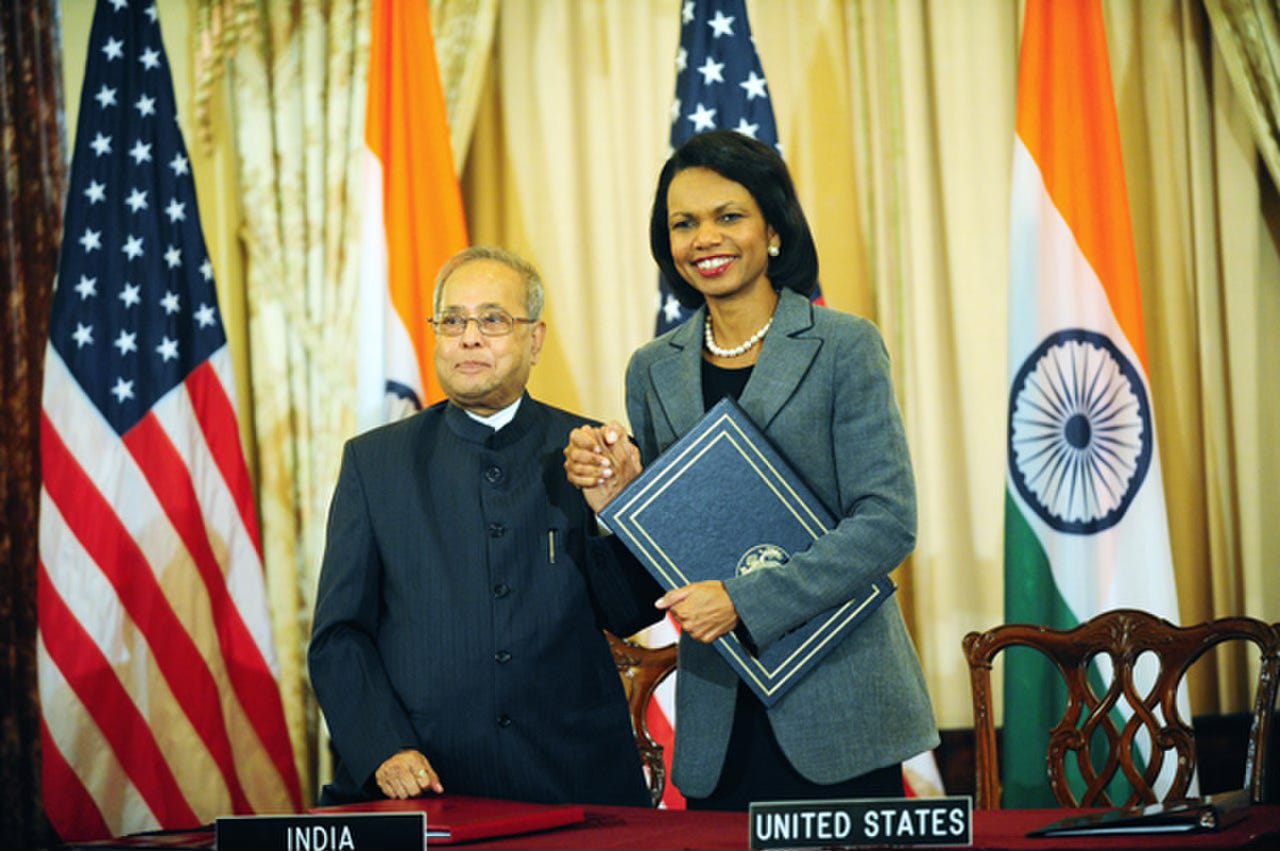↪ re: The Battle of '24—Politics vs Economics
An economist is an expert who will know tomorrow why the things he predicted yesterday didn't happen today —Laurence J. Peter
This past week has certainly been momentous, as elections around the world roil geopolitics.
Recent events include the just-completed polling in India, the world’s most populous country, the announcement of a surprise contest in the UK set for July, and the historic election of the first woman as president of Mexico.
Especially fascinating to me is the likely contest for Governor of Tokyo between two female politicians in Japan. Incumbent Yuriko Koike faces her probable challenger Renho, who goes by her first name only, is half Taiwanese, and is the mother of a Japanese pop idol.

You may have noticed the recent focus on econVue on South Asia, with two new articles, and an upcoming panel on the Indian elections on Friday, June 7th. (All paid subscribers are welcome to join.) We will continue to increase our coverage of this critical region.
“An important shift is underway in the global economy: the relocation, diversification, and reshoring of supply chains… Nowhere is this more visible than the Indo-Pacific region.” – Asia Society Policy Institute
On a philosophical note, the compound volatility associated with so many elections in 2024, affecting more than half of the world’s population, has to be impacting global growth—regardless of outcomes. The reason is uncertainty, the bane of all businesses. Does China’s system, with no elections and closed door elite deliberations, have a comparative advantage? Or is the resulting lack of transparency in policymaking its Achilles heel, or in Chinese, soft rib (软肋)?
Do elections only work well in certain cultures and environments—and it has to be asked, is the US one of them? Monarchies, which have become largely ceremonial in the 21st century, do not seem to be a real alternative. However Curtis Yarvin writes that without continuity, there is no change, and says that it is time for a conversation about monarchy.
There are no easy answers to these questions, but change is in the air. I believe it is probably time to have a conversation about how to increase stability and national unity without sacrificing the vibrancy of democracy and a free economy.
It is interesting that British Prime Minister Rishi Sunak, as part of his election platform, has proposed national service for 18-year-olds. China also revised its conscription rules this past April. The purpose in both cases is to increase national unity while strengthening security. I think we will see more of this type of mobilization, even without the immediate threat of war. By the way, the world’s largest army is in…Vietnam.
Only one thing is sure—the remainder of 2024 will not be boring, and we will have no shortage of topics to discuss on econVue.
–𝓁𝓎𝓇𝒾𝒸 💬
Editor-in-Chief
re:Vue is all our newsletters condensed into one convenient, unobtrusive twice-monthly e-mail. You can select exactly which econVue newsletters you receive or omit, including this one, at any time in your econVue account.Now available: econVue+Chat, for annual econVue+ subscribers only.
.:re:Vue
↪: Now on econVue 🔈
1.:
🎧 THE HALE REPORT™ ⸱ Episode 55Christopher Wood—On Greed & Fear →
Hosted by LYRIC HUGHES HALE ⸱ MAY 18, 2024
My guest for the 55th episode of The Hale Report™ is Christopher Wood, the author of Greed & Fear, the legendary financial newsletter he began in 1996 while at CLSA. His letter comes with an equally legendary caution against forwarding to others, adding to its must-read cachet. 💬
2.:
👥 PANELSUpcoming Panel: The Indian Election (Jun 7) →
Implications for global investors and policymakers
⧉ Background
⸱↳ Registration
FRIDAY, JUNE 7th @ 10 am CDT
Panelists
3.:
👥 PANELSUS-China trade, technology, and general economic conditions in China
LYRIC HUGHES HALE AND MICHELE WUCKER ⸱ MAY 16, 2024
“Our panel on Thursday, May 16, 2024 featured Michele Wucker, who invented the term Gray Rhino to describe the risks we know exist, but choose to ignore. We discussed China and how to deal with geopolitical risks with a group of subscribers and colleagues, many of whom have significant China experience themselves.”
↪: Latest articles
4.:
§ ConflictThe Ukraine War Has Gone Negative →
Scenarios around the possible fall of Ukraine
STEPHEN BRYEN ⸱ MAY 20, 2024
"Strictly from a military point of view, the use of airpower is NATO’s best option for helping Ukraine. But NATO pilots would be flying against excellent Russian air defense systems and capable Russian fighter jets. The real risk, of course, is that a NATO intervention would be the start of a war in NATO Europe and the possible destruction of European infrastructure, even cities."
If you want to know what is really going on in Ukraine, Stephen Bryen is an impeccable source of information and analysis. His full biography is below. Spoiler alert: he is very concerned about what is happening right now and does not see any possibility of a Ukrainian victory. 💬
5.:

§ Regional, EnergyA Defining Moment in US-India Relations →
Seasoned diplomats recall the intricacies behind the 2008 US-India Civil Nuclear Agreement
MARSHA VANDE BERG ⸱ MAY 10, 2024
This article made me nostalgic for the days when diplomatics were diplomats, not unarmed combatants. This agreement helped to forge the US-India relationship. Marsha Vande Berg takes us through the history and the players. 💬
6.:
§ RegionalThe economic intersection of the world
SALIYA WEERAKOON ⸱ MAY 20, 2024
“The story of South Asia's ascent within global corporate and political corridors of power—contrasting markedly with Western paradigms—is not merely about numbers or names. It is a profound narrative of resilience, culture, and transformation.”
7.:

§ RegionalInvestment in an era of geopolitical rivalry
LYRIC HUGHES HALE ⸱ MAY 20, 2024
“I have no way of knowing if and when China will cross a red line and ignite a hot war in Asia. However, I am concerned that by overestimating China’s strengths, and ignoring the country’s weaknesses, we will overplay our hand and perversely help to bring about the very outcome we fear most.”
↪: Who’s on econVue
8.:
VOICES📍Washington DC
Stephen Bryen is a former Deputy Under Secretary of Defense and is a leading expert in security strategy and technology. Bryen writes for Asia Times, American Thinker, Epoch Times, Newsweek, Washington Times, the Jewish Policy Center and others.
Focus
→ War and deterrence
→ Security strategy and technology
→ Military power
9.:
VOICES📍Sri Lanka
Saliya Weerakoon is an experienced executive, entrepreneur, columnist, and public speaker with 30 years of professional experience in the Asia Pacific and Middle Eastern markets.
Focus
→ South Asian politics and economics
→ Education and Health Care Policy
→ Strategic Marketing & Management
→ Digital Economy
→ Activist Philanthopy
→ Entrepreneurship & Investments
📌 Notes
10: ⤵
11: ⤵
12: ⤵
Keep reading with a 7-day free trial
Subscribe to econVue to keep reading this post and get 7 days of free access to the full post archives.












